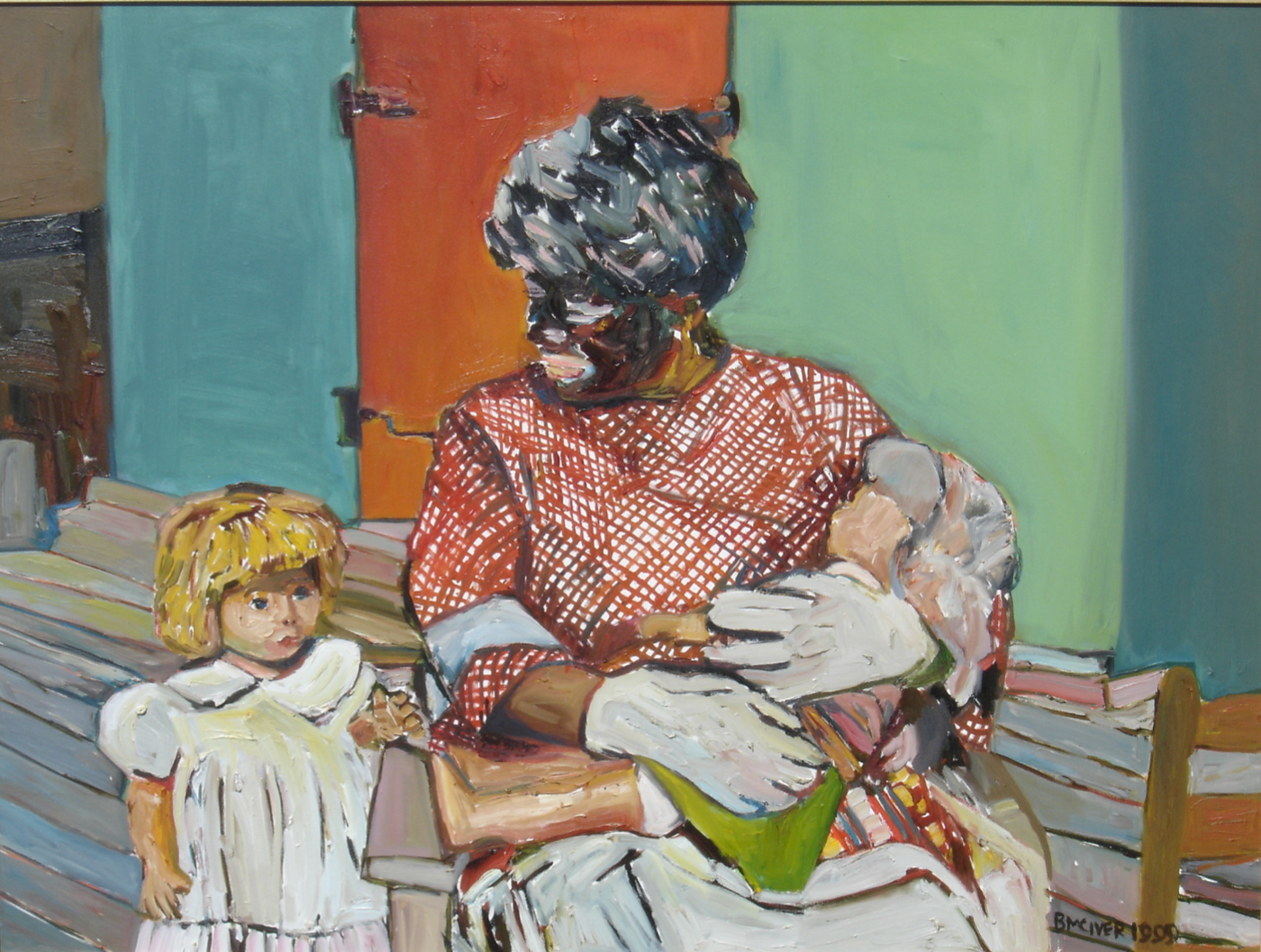
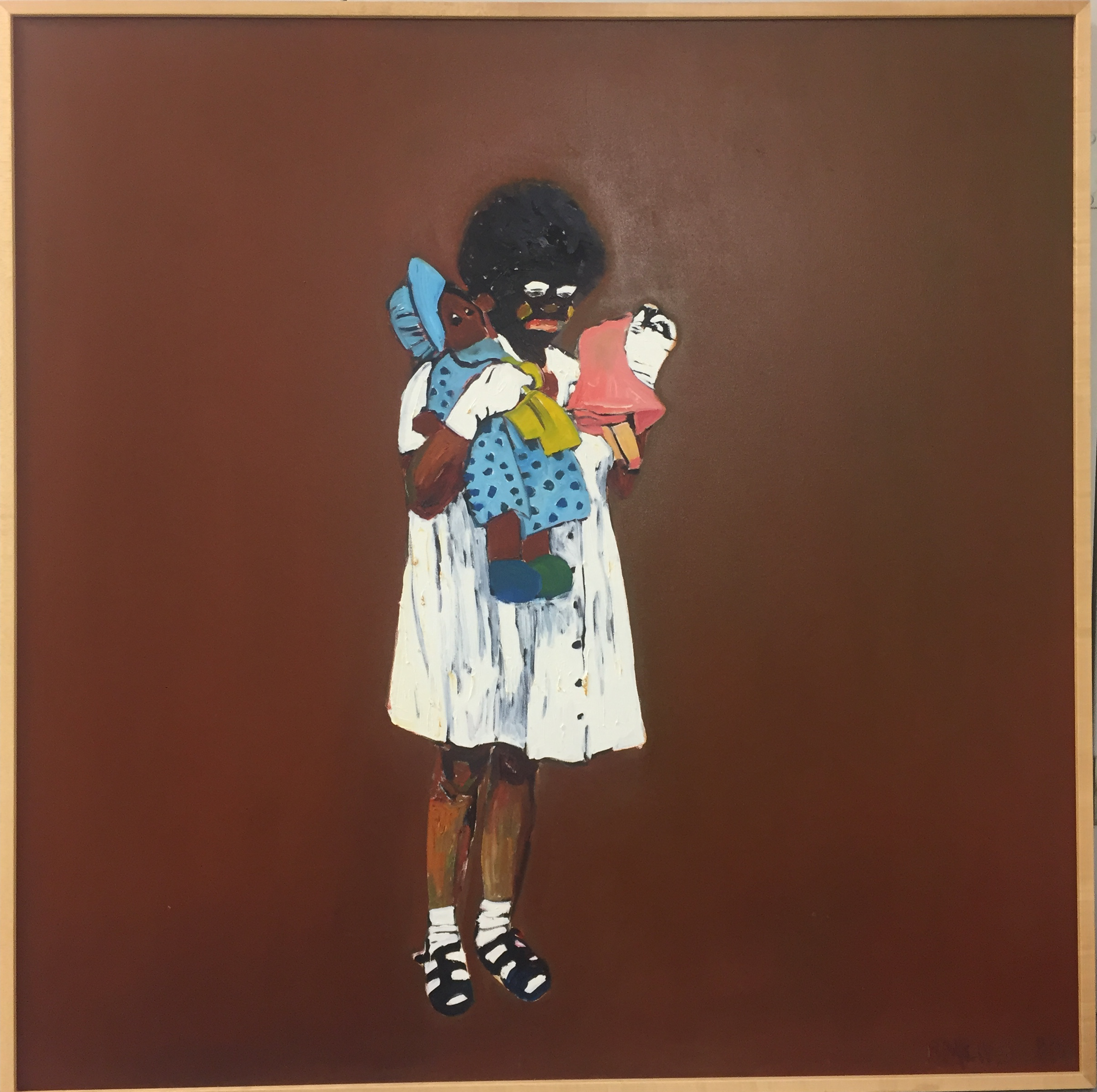
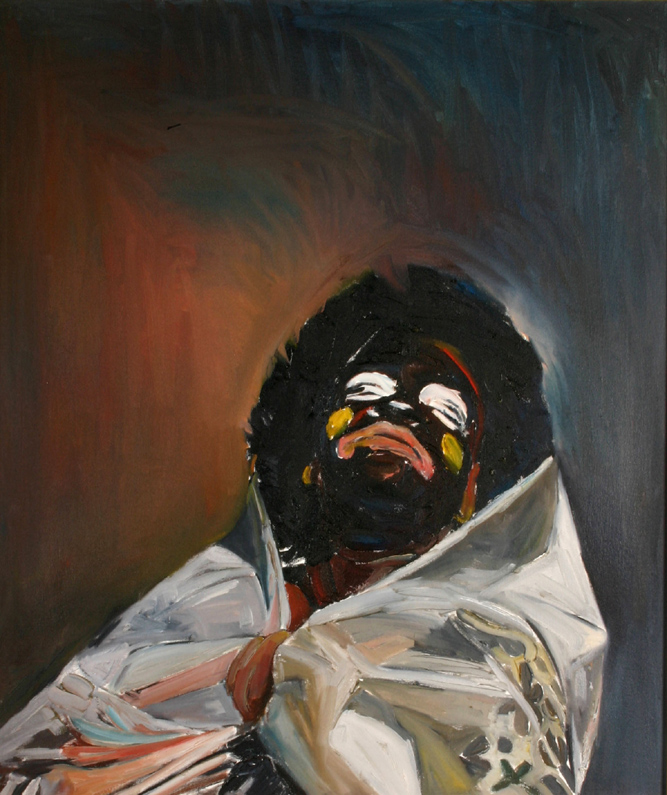
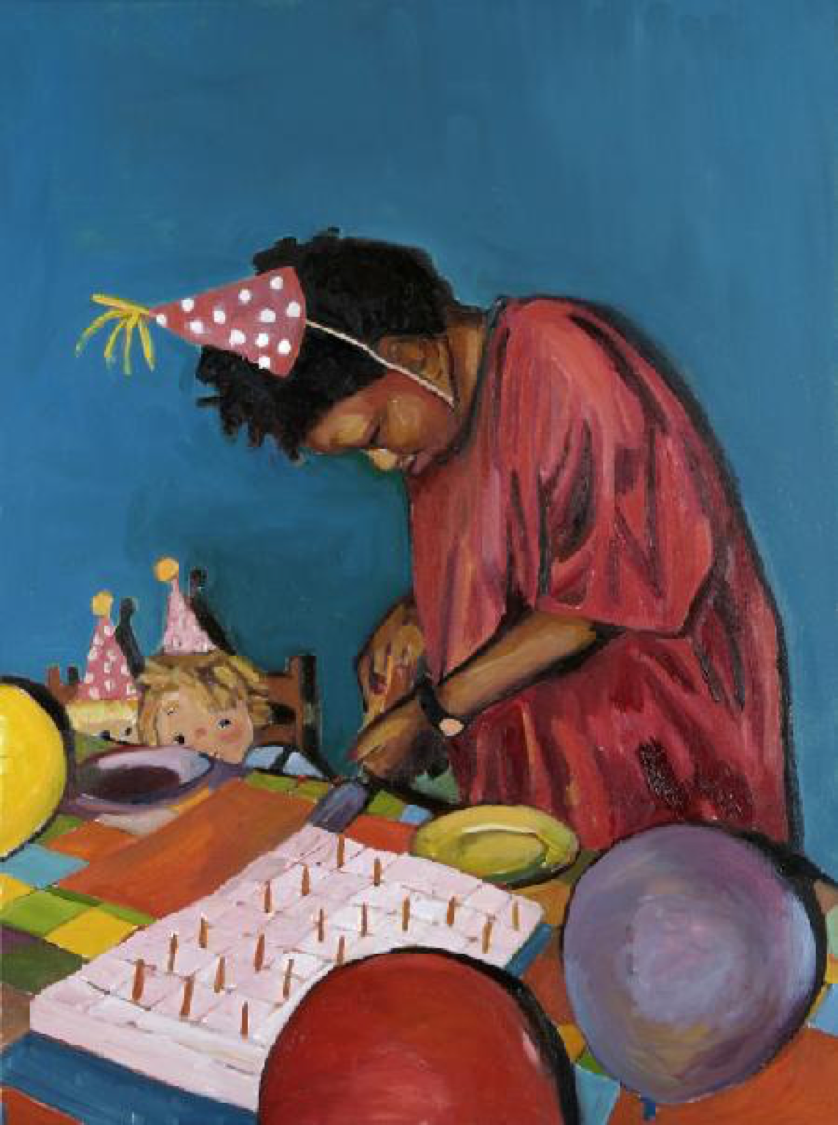
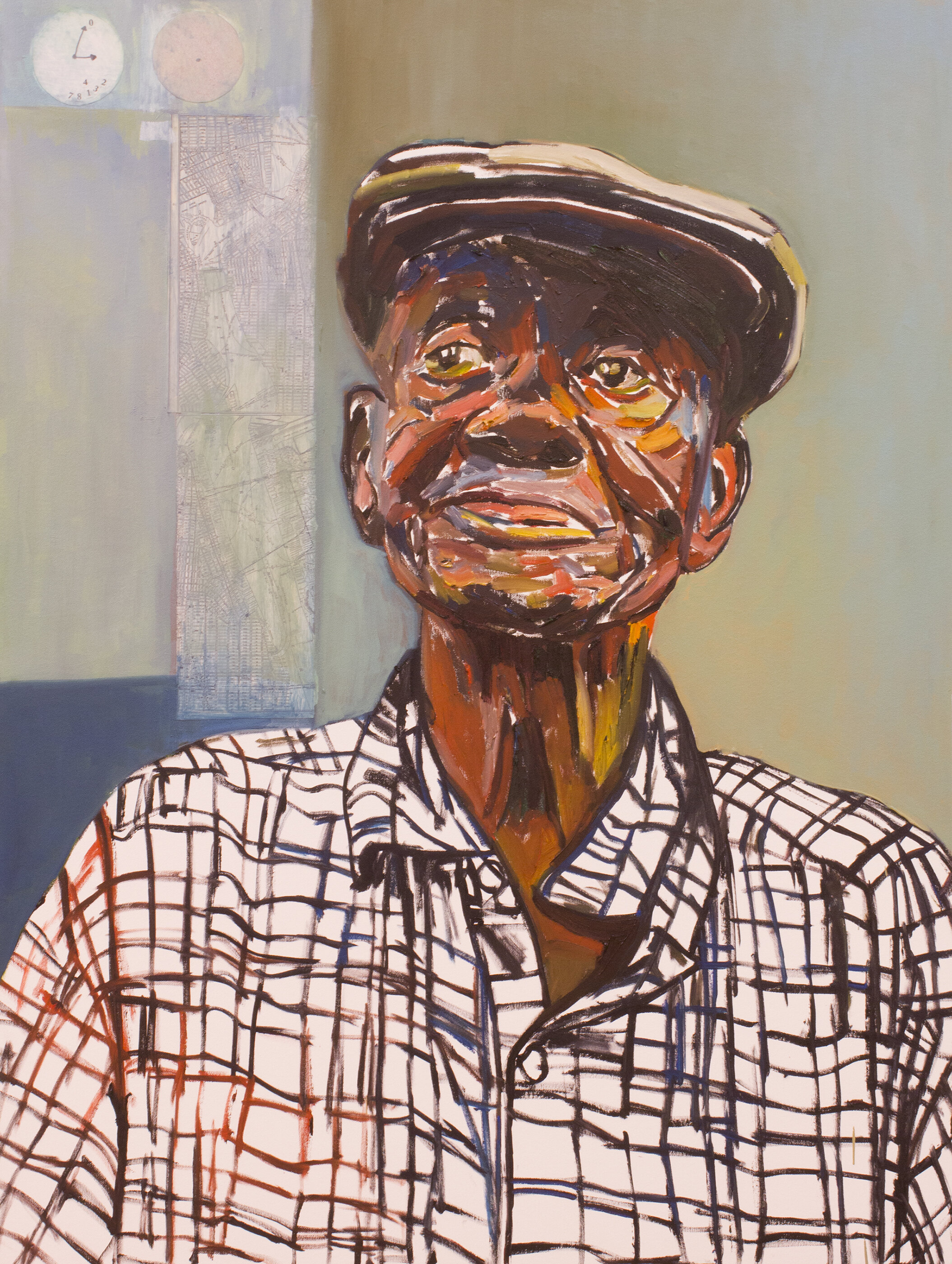
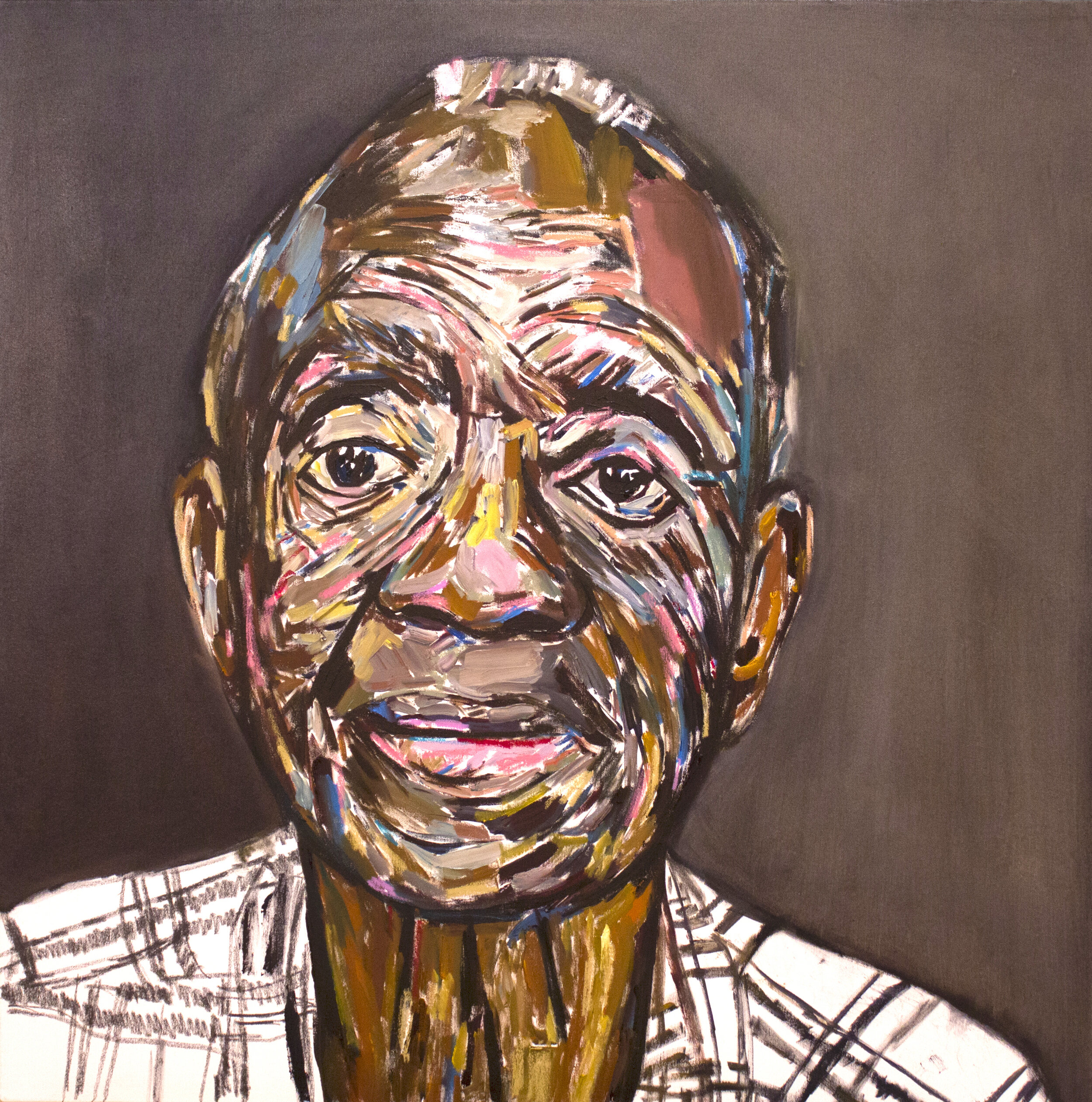
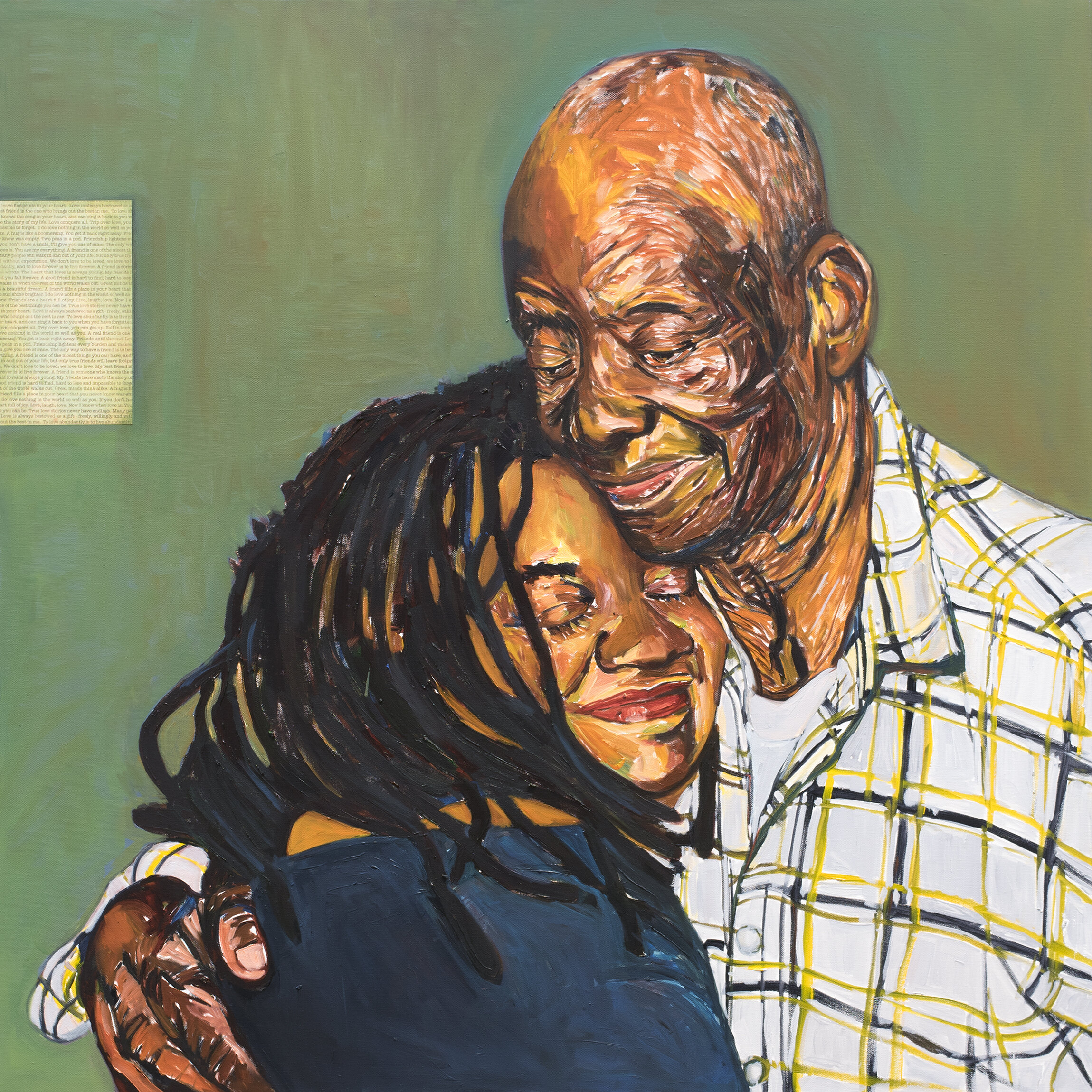
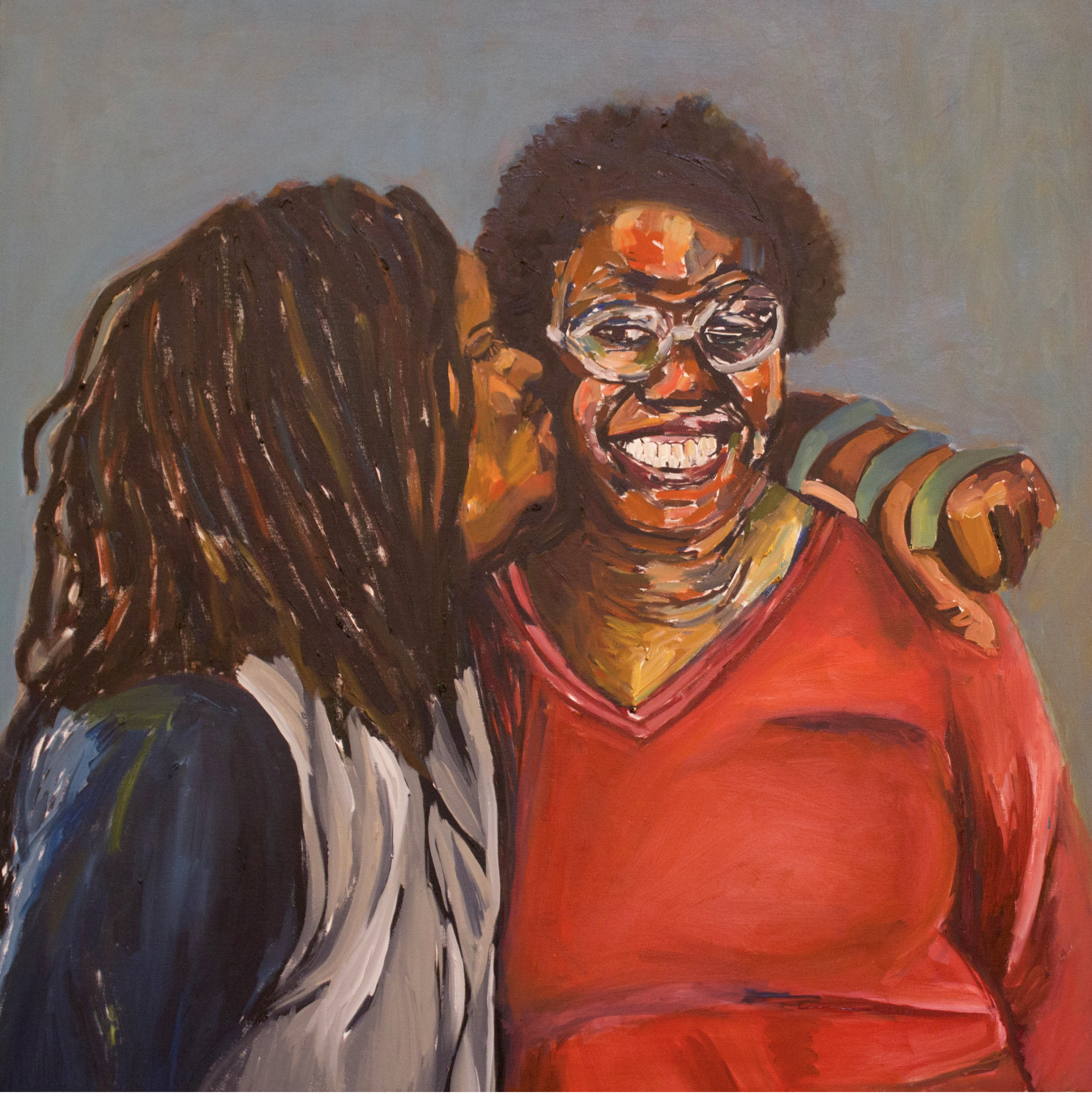
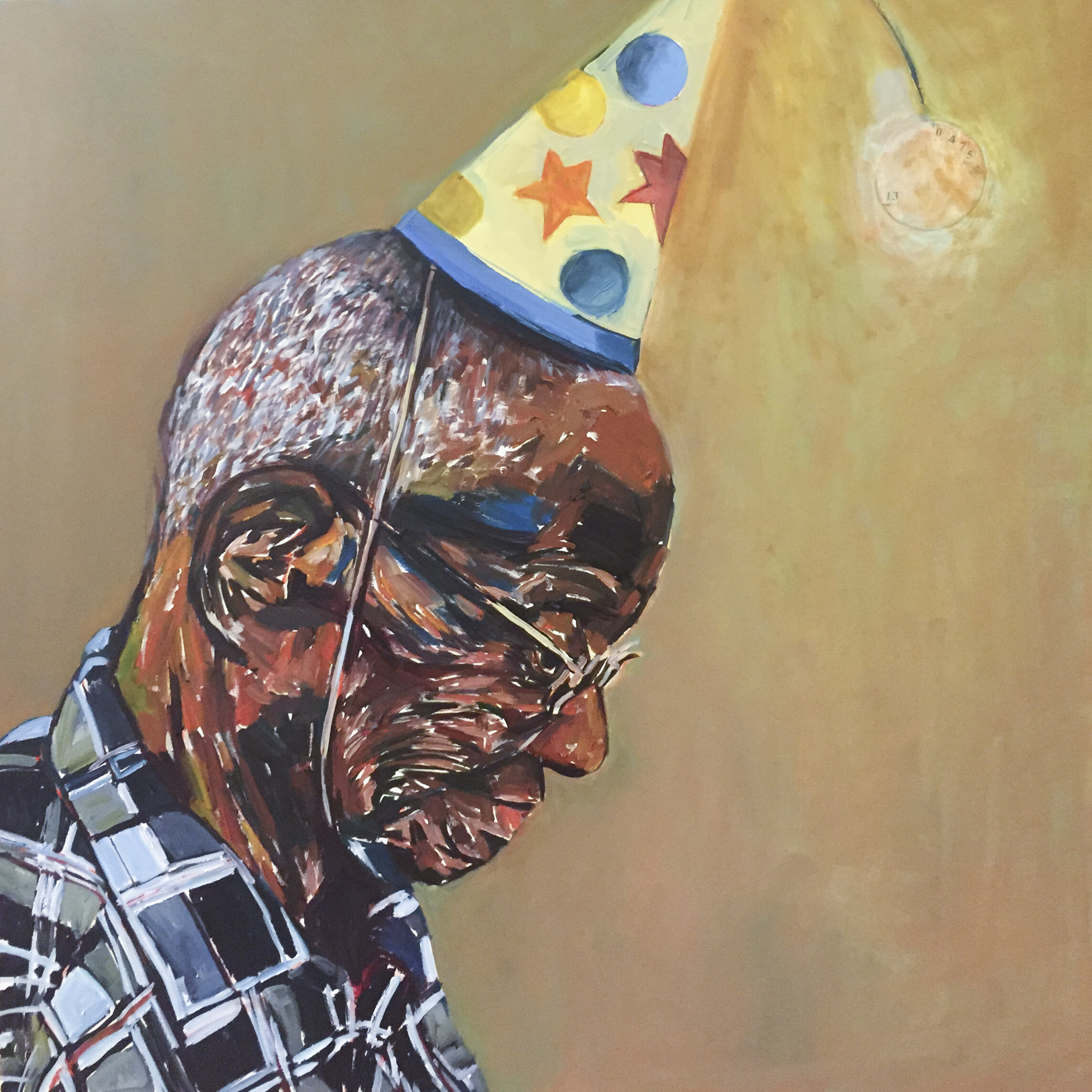
Beverly McIver
McIver was born in a housing project in Greensboro and raised by a single mother, who was a domestic worker. Thematic influences in her work are drawn from her mother’s job as a housekeeper and being bused to a school that was predominantly white and affluent. In the HBO documentary Raising Renee, McIver explains how she found comfort in the school’s clown club, which offered the opportunity to paint her face and essentially transform herself into someone else.
This led to a series of paintings where the artist paints herself as a clown in whiteface, a tense concealment of identity masquerading as a playful character.The series evolved into paintings of McIver as a clown with her face painted black—an exploration of black stereotypes and her own identity as a black woman—which were received with more controversy than the previous iterations of her clown paintings.
McIver’s relationship with her sister Renee is at the center of the web of influence in the artist’s subject matter, playing a pivotal role not just in her personal life, but in her career as well. When their mother passed in 2004, McIver became her sister’s legal guardian. McIver is open about the struggle of caring for Renee and how it has affected her ability to paint, particularly in the way her responsibilities removed her from the gallery scene when she left New York to live with and care for her sister.
The repeated use of certain subjects carries an implied desire to attain mastery over those subjects or what they represent, though done so almost to a point of reverence. Whether they are portraits of her father or scenes of her dancing with her sister, each of McIver’s works translates as an endeavor to better understand not just the subject, but the relationship between artist and subject as well
Bernice Steinbaum and Simone Sutnik
